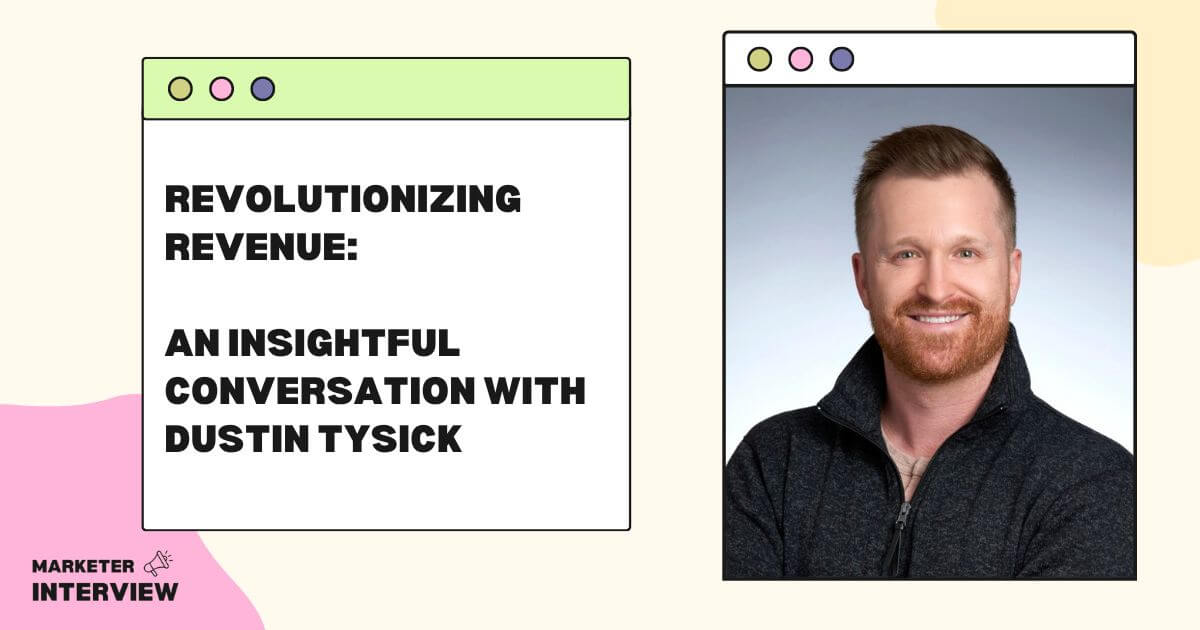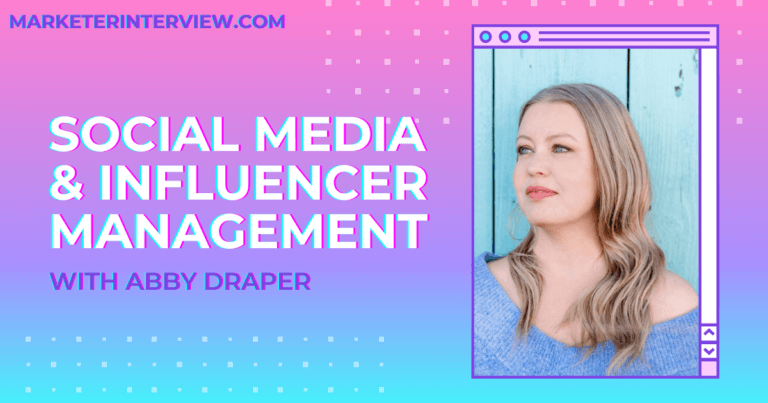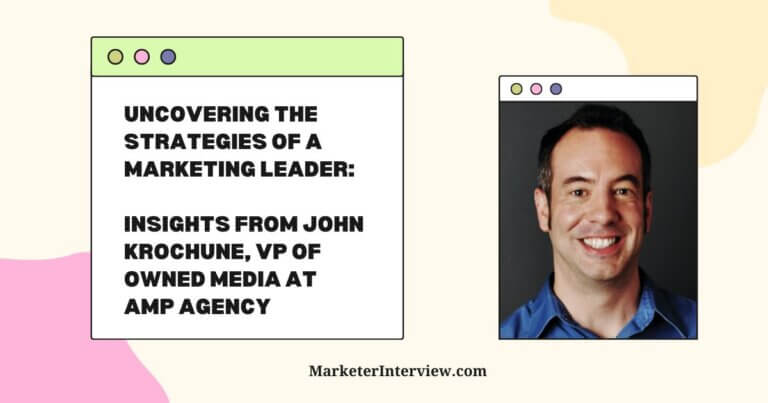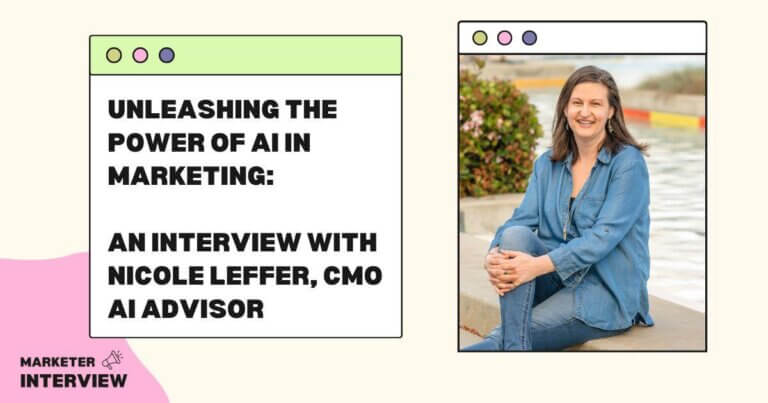Revolutionizing Revenue: An Insightful Conversation with Dustin Tysick
Welcome to another exciting interview on Marketer Interview, where we delve into the minds of influential marketers who have made significant strides in their careers.
In this edition, we have the pleasure of speaking with Dustin Tysick, the VP of Revenue at Testimonial Hero.
With a background in sales and a decade of experience in marketing, Dustin’s expertise lies in customer marketing, demand generation, and marketing/sales alignment.
Let’s jump into the interview and gain valuable insights from Dustin Tysick.
Contents
- 1 Can you tell us about your journey and how you transitioned from sales to marketing?
- 2 What sparked your interest in customer marketing, and what strategies do you find most effective for driving customer loyalty and advocacy?
- 3 As someone who has experienced both sides of the spectrum, how do you foster alignment and collaboration between sales and marketing teams?
- 4 What role does demand generation play in your overall marketing strategy, and what tactics have you found particularly successful in driving demand?
- 5 How do you measure the success of your customer marketing initiatives, and what metrics do you prioritize when evaluating their impact on revenue?
- 6 What are the biggest challenges that marketing and sales teams face when trying to work together, and how can these challenges be overcome?
- 7 Could you share a specific campaign or project where you successfully aligned marketing and sales efforts to achieve exceptional results?
- 8 With the rapid advancement of marketing technology, what tools or software do you find indispensable for your work?
- 9 What emerging trends or developments in customer marketing excite you the most?
- 10 What valuable lessons have you learned about building and leading high-performing sales and marketing teams throughout your career?
- 11 Are there any other marketing professionals you recommend we contact for future interviews?
Can you tell us about your journey and how you transitioned from sales to marketing?
I started in sales in 2007, selling textbooks, then eventually transitioned to the Ed Tech space selling software solutions to Universities.
I enjoyed sales but took more of a marketing approach and utilized mail merge, pamphlets, comparison sheets, etc.
After 6 years in sales, I went back to do my MBA with a specialization in marketing, and I also spun up my own little e-commerce business selling pocket squares.
My first job post-MBA was at a small tech startup, and right from the start, I enjoyed that intersection where sales and marketing met and focused a bit on both areas.
Now I’m leading a revenue team at Testimonial Hero and get to combine sales & marketing into one team.
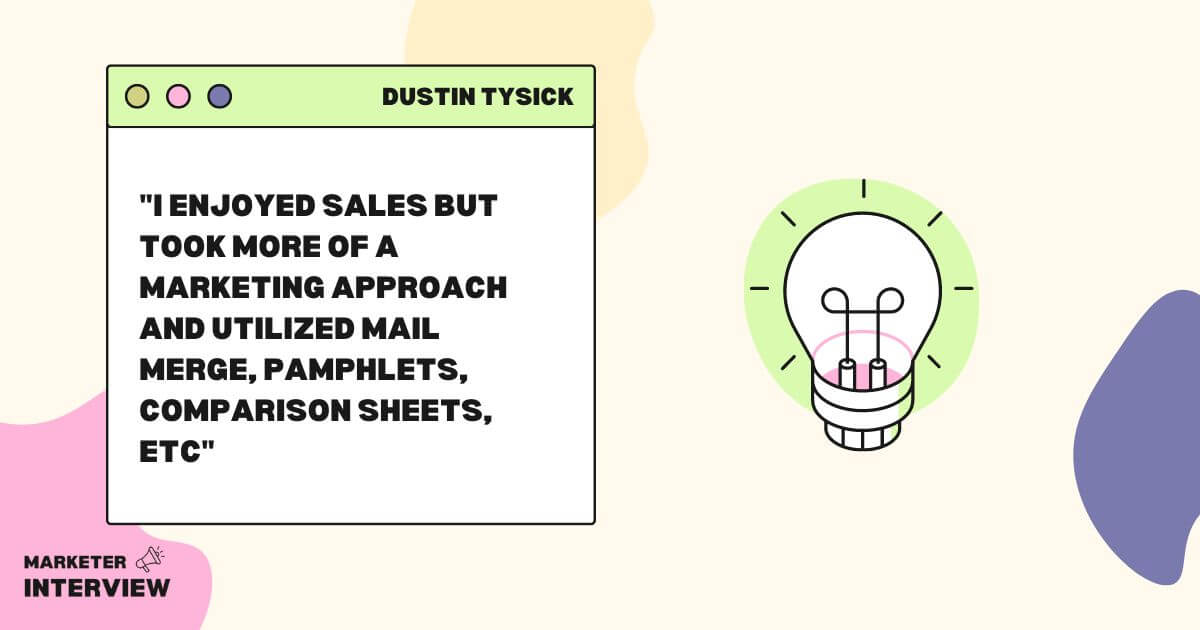
What sparked your interest in customer marketing, and what strategies do you find most effective for driving customer loyalty and advocacy?
It started with sales and talking to customers all day. You can get so much knowledge and insight that marketers don’t get exposed to.
To me, it showed the value of understanding the customer and using the customer’s voice to impact your marketing.
There isn’t a one-size fits all strategy for customer advocacy, but the overarching thing to remember is that you need a consistent funnel and a process to create content. It can’t always be one-off campaigns that you run every 6-8 months.
As someone who has experienced both sides of the spectrum, how do you foster alignment and collaboration between sales and marketing teams?
It’s easy now because I get to manage both the sales and marketing teams, but overall the key is just to align on the same set of goals and metrics.
Most sales/marketing conflict stems from sales focusing on revenue and marketing being held to a lead goal. So marketing drives garbage leads, sales complaints, and the departments clash. Align on metrics and goals, and it makes life way easier for both sides.
What role does demand generation play in your overall marketing strategy, and what tactics have you found particularly successful in driving demand?
I’m fortunate to be at a company that values demand gen and understands that a significant component is just getting your message and point-of-view in front of your audience, even if it doesn’t have an immediate payoff.
We utilize our podcast as our pillar piece of content for a lot of our demand gen, and we also create social ads from testimonials that our customers have given us.
As for channels, we sell to B2B marketers, so LinkedIn is our most effective demand-gen channel. We have a list of target accounts to which we consistently run ads, and once a person engages with our ads or visits our site, they go into our remarketing layer to continue the journey.
How do you measure the success of your customer marketing initiatives, and what metrics do you prioritize when evaluating their impact on revenue?
We weave the voice of the customer into everything we do in marketing, so it’s difficult to separate it into a specific metric.
For example, we use it to run ads to our target accounts, our sales team has a Google Sheet full of testimonial videos on specific topics and from specific industries that they use in their sales follow-up, and our CX team uses the same sheet to provide examples and ideas to customers.
What are the biggest challenges that marketing and sales teams face when trying to work together, and how can these challenges be overcome?
I mentioned it above, but it’s just the lack of shared goals and targets.
Another challenge marketing can face in a very sales-focused organization is that they are asked to tie every marketing campaign or initiative to a direct sales outcome.
That’s fine when it comes to outbound campaigns or capturing demand via paid channels. Still, marketing needs the freedom to do marketing and have a set amount of budget allocated to demand gen and providing value to their target audience.
I’d say our targeted outbound campaigns that combine LinkedIn ads with outbound emails to generate interest within our audience.
It’s way easier to get a response to an email or a cold call if the person you’re reaching out to is already aware of you. Plus, it makes the sales call much easier if they understand what you’re about and what value you provide. Marketing that covers fire for key accounts and combines it with sales outreach works well.
With the rapid advancement of marketing technology, what tools or software do you find indispensable for your work?
This has changed almost daily lately. We’re exploring a lot of options when it comes to AI right now.
Everything from utilizing AI to analyze transcripts from customer interviews to create written case studies to using AI to do most of our research on key accounts and inform our outreach.
What emerging trends or developments in customer marketing excite you the most?
The rise of micro-influencers in the B2B space is fascinating. It’s been happening in B2C forever, but nowadays, having a happy customer with a loyal following on social media opens up many doors.
You can run testimonials from them to their audience via LinkedIn targeting and work with them for events or paid posts. There are a lot of options there.
What valuable lessons have you learned about building and leading high-performing sales and marketing teams throughout your career?
The biggest one is just to let people run. Telling people what to do and micromanaging doesn’t work. You need to hire the right people and let them do their thing.
Also, someone with less experience often comes up with a brilliant idea because they don’t have all the baggage of past roles and experiences. So just be open to all ideas regardless of who or where they come from.
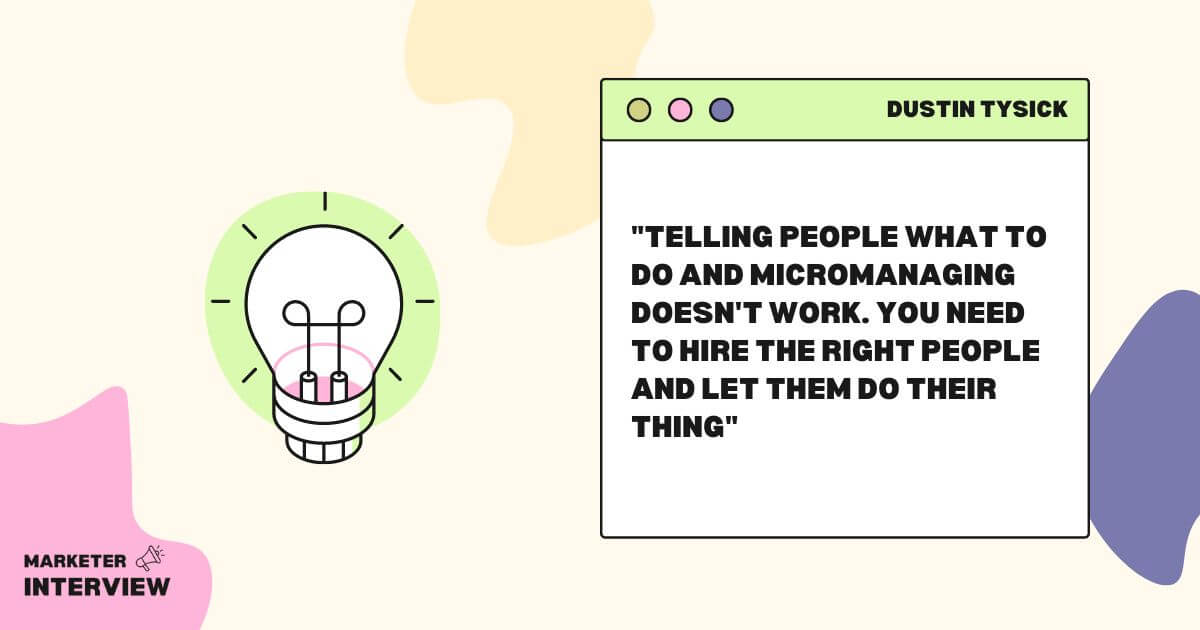
Are there any other marketing professionals you recommend we contact for future interviews?
I’ve had a bunch of great marketers on our B2B Revenue Leaders podcast. Feel free to reach out to any of them. They’d all be good choices.
